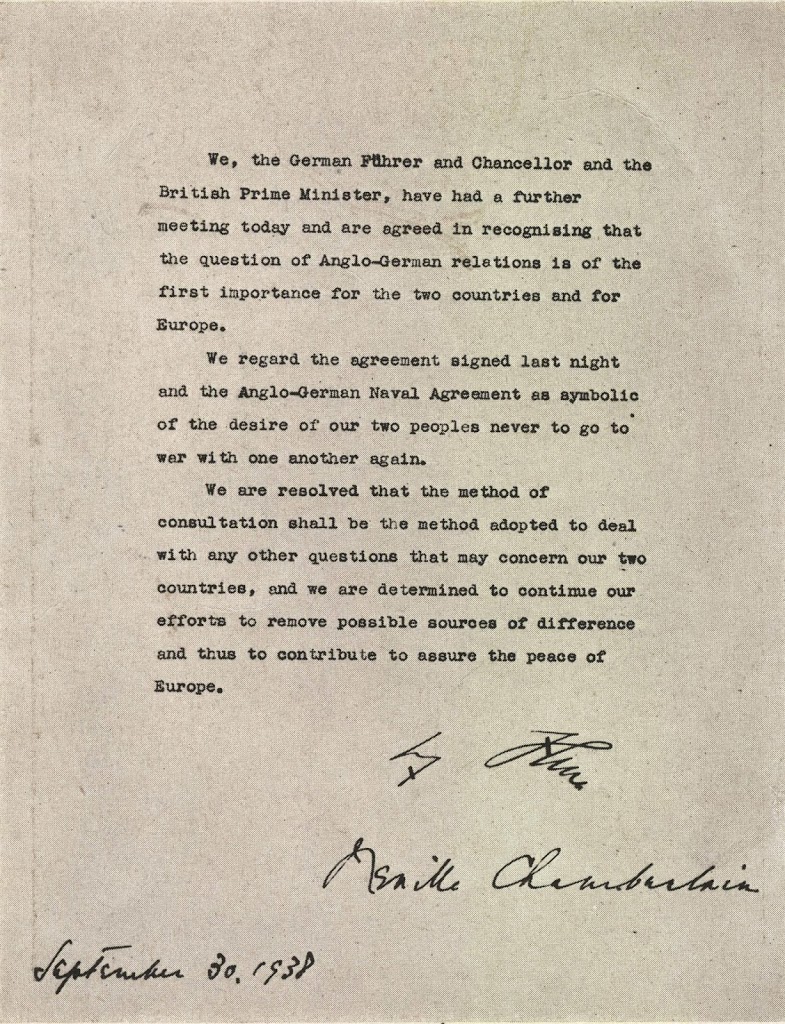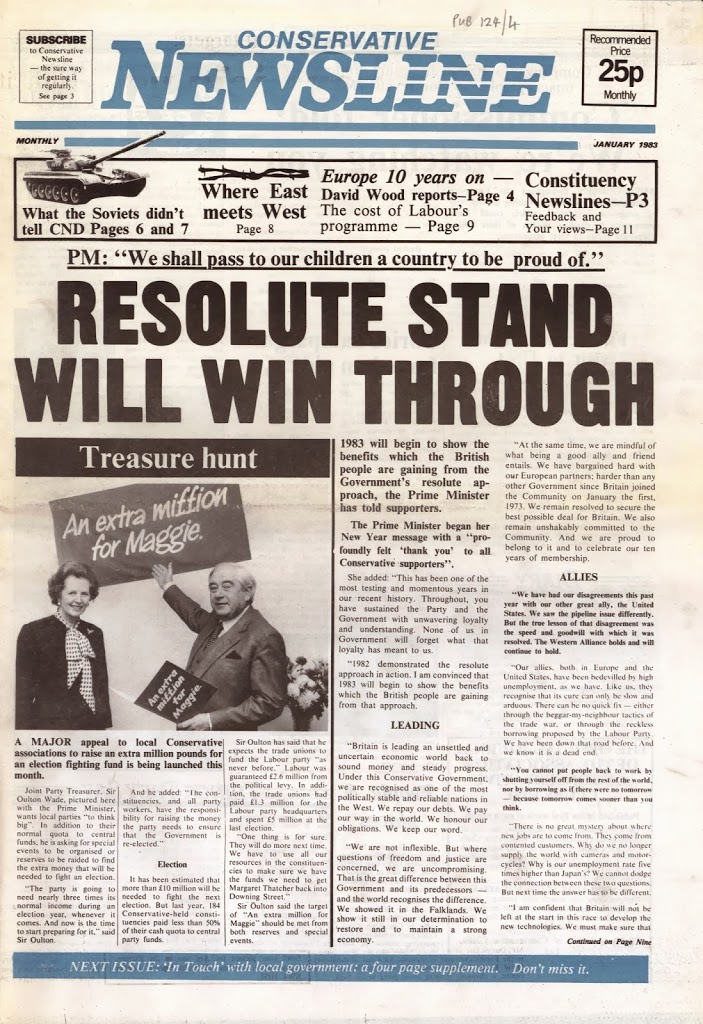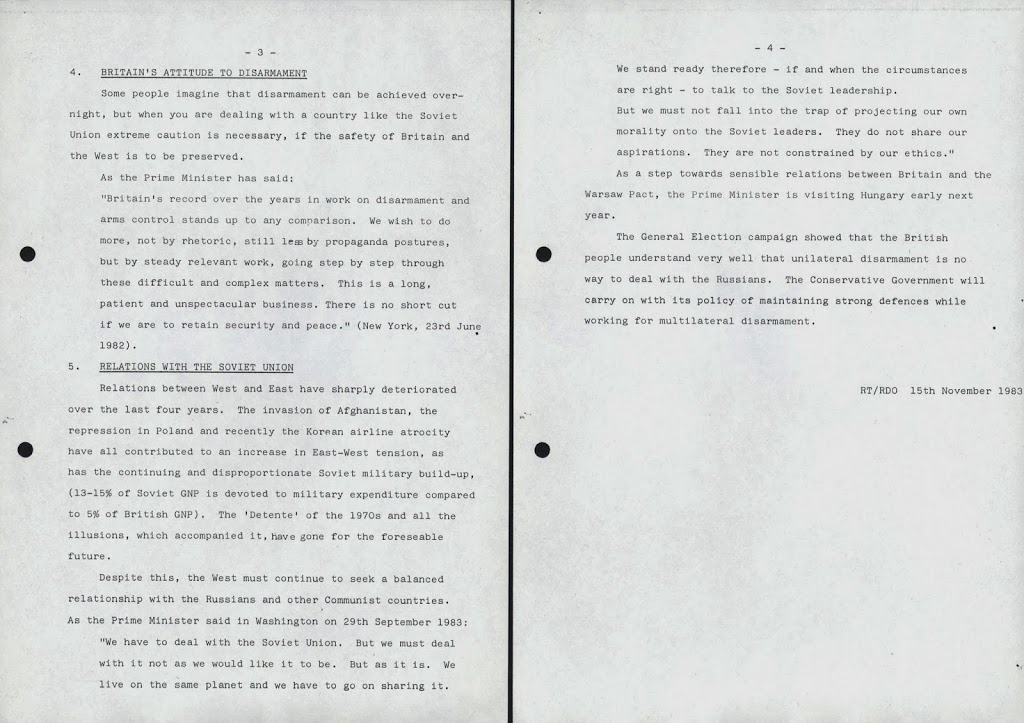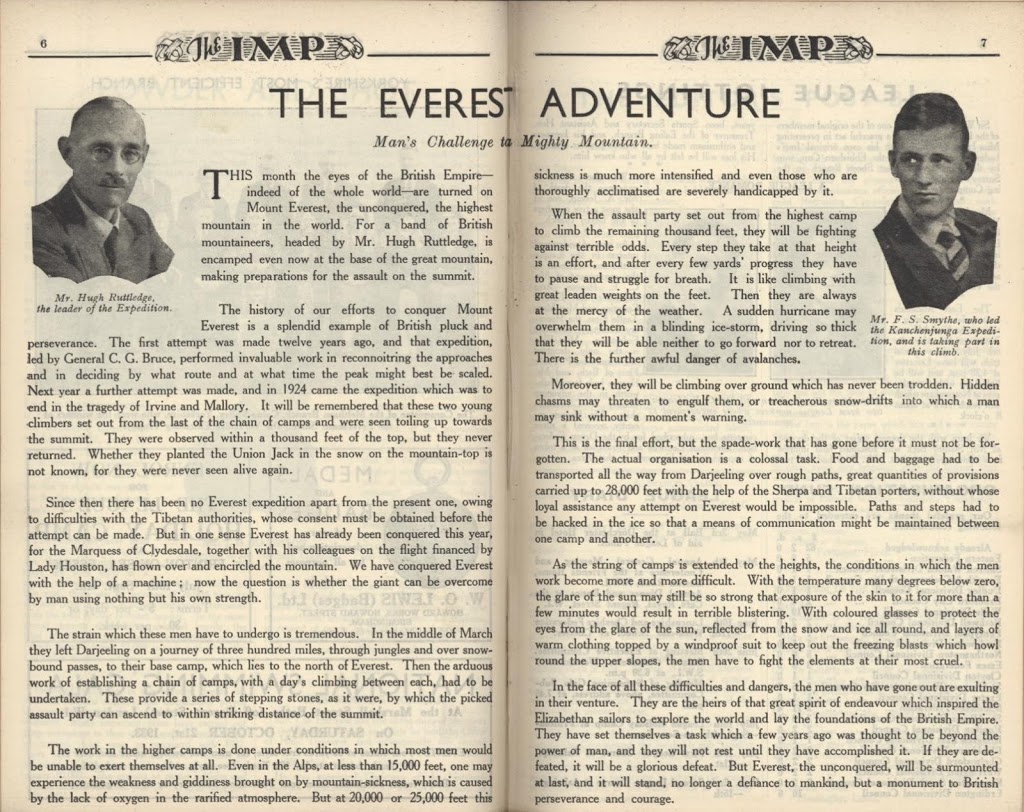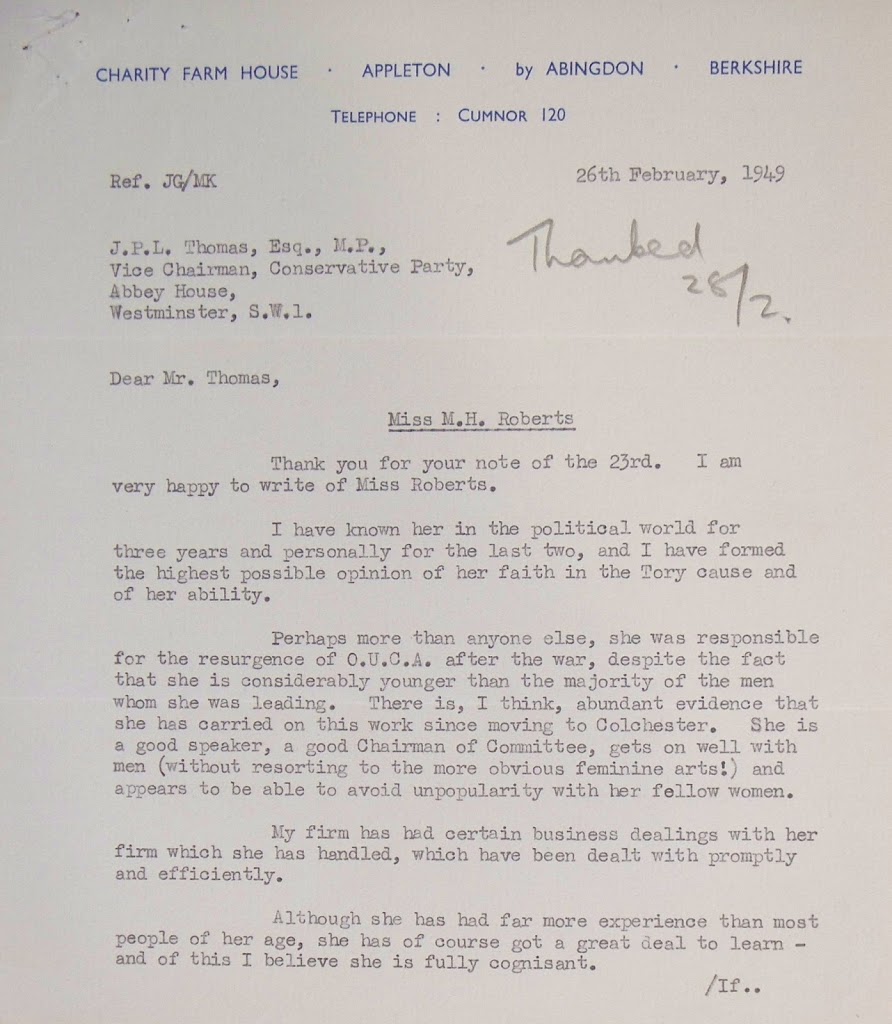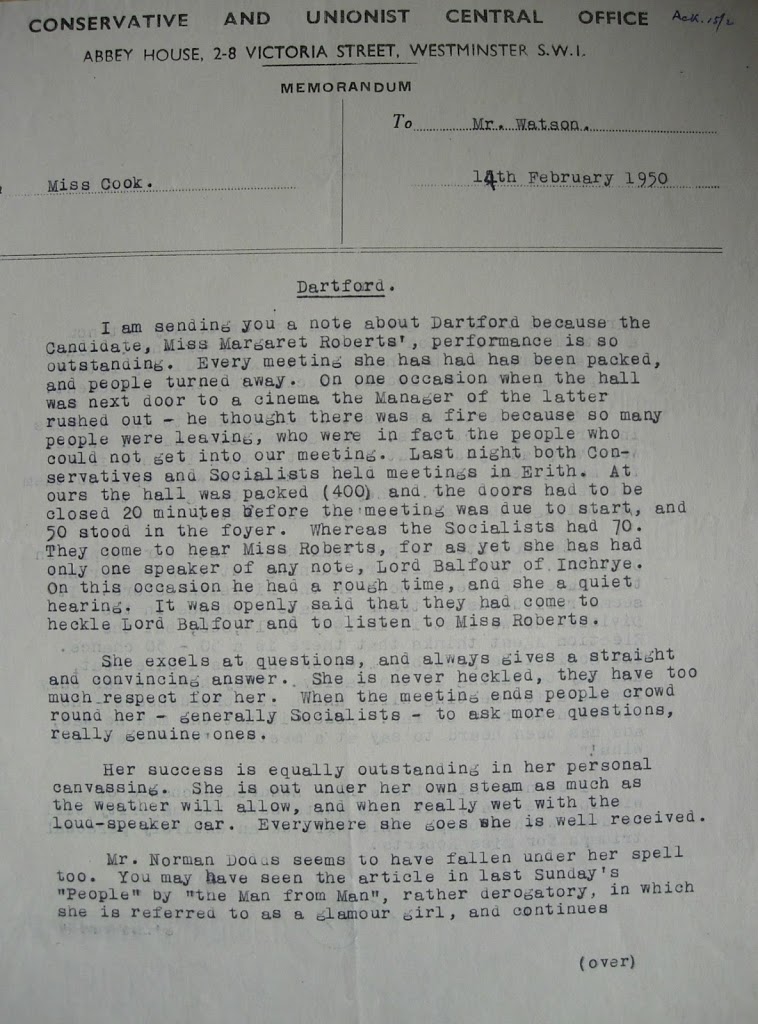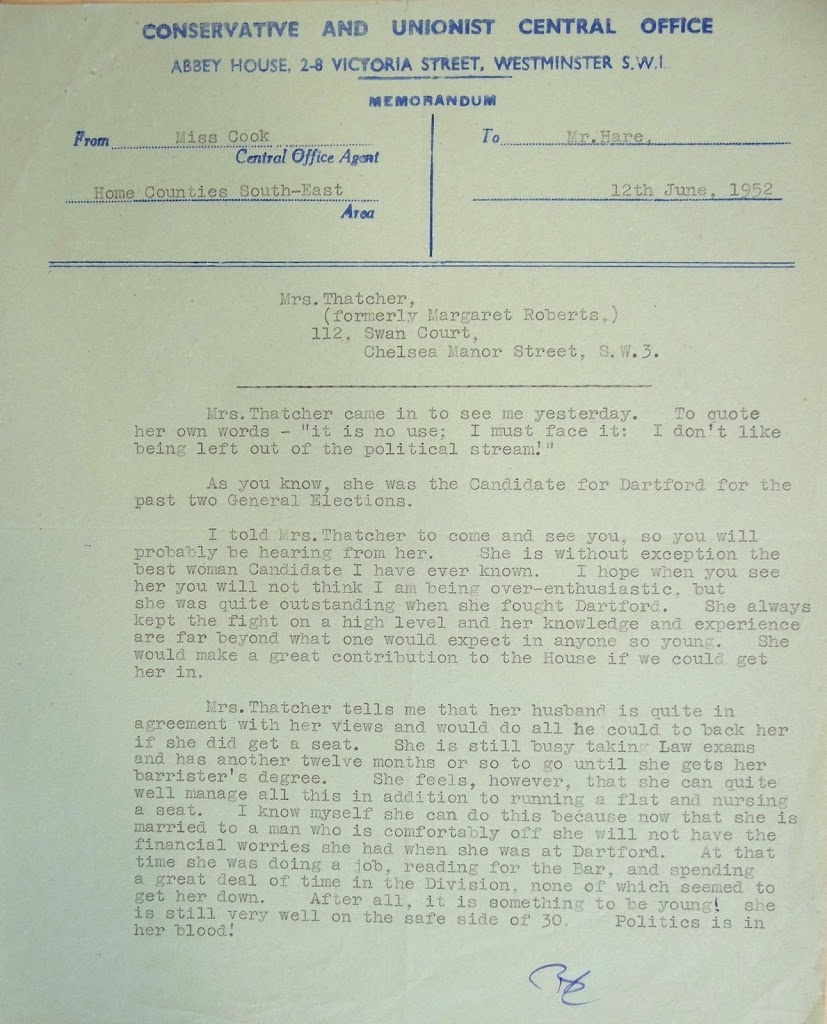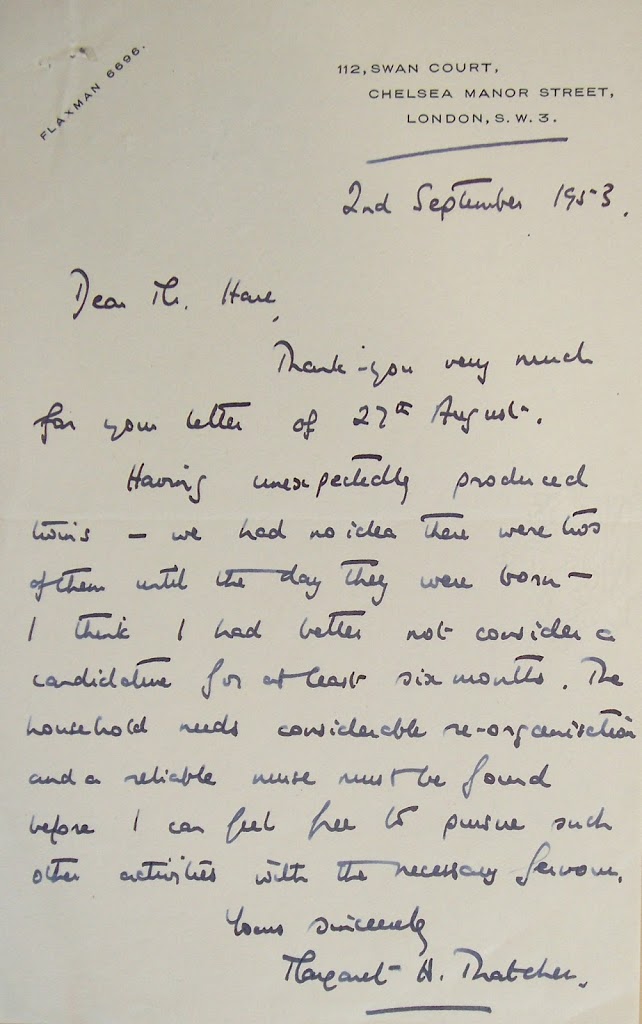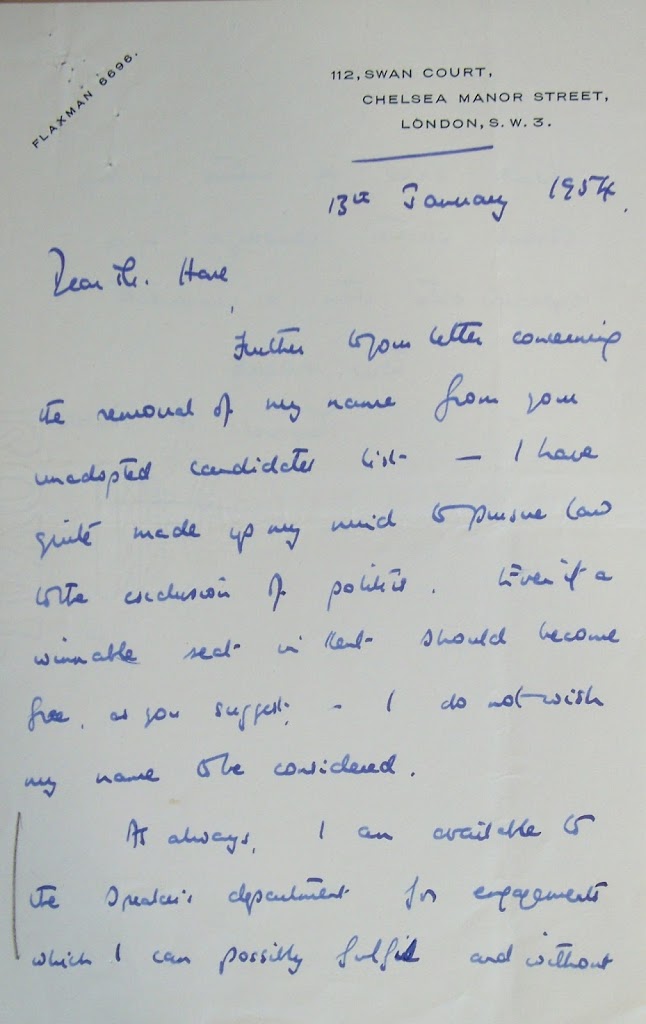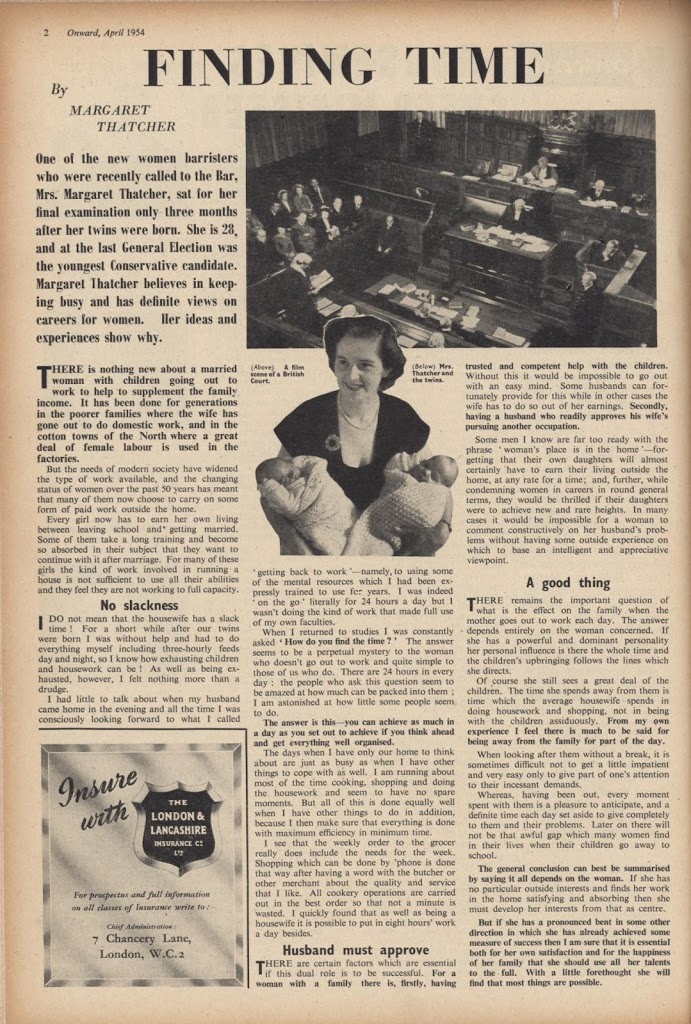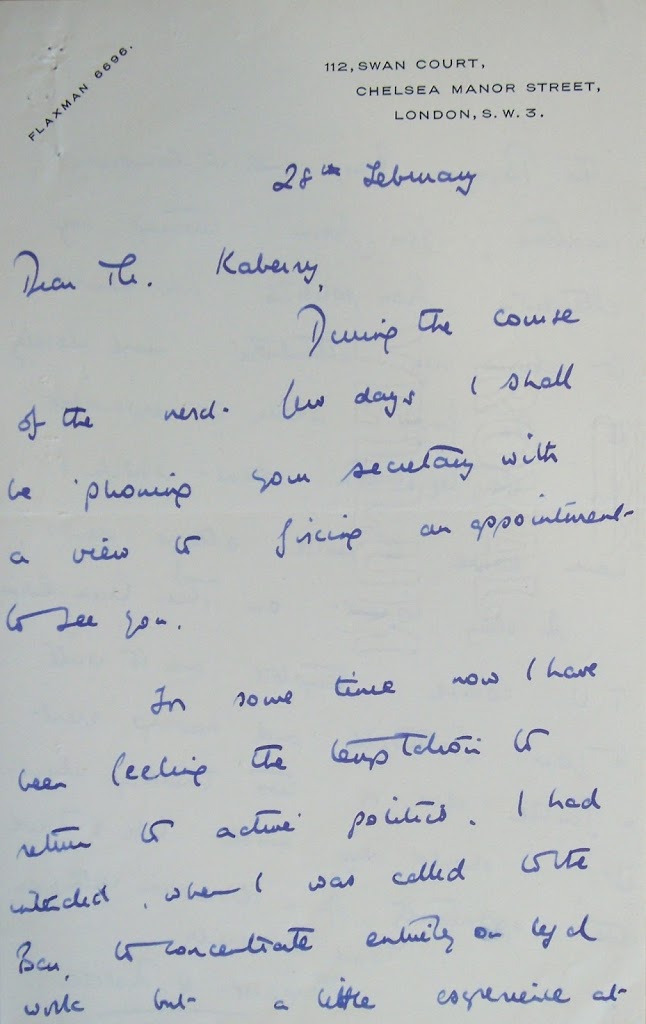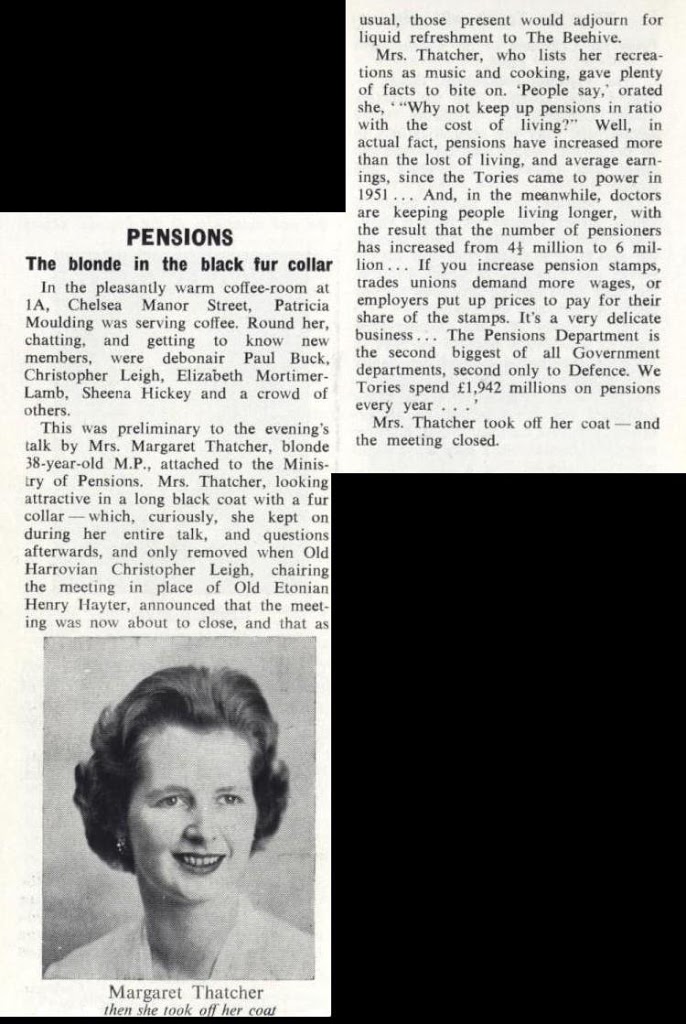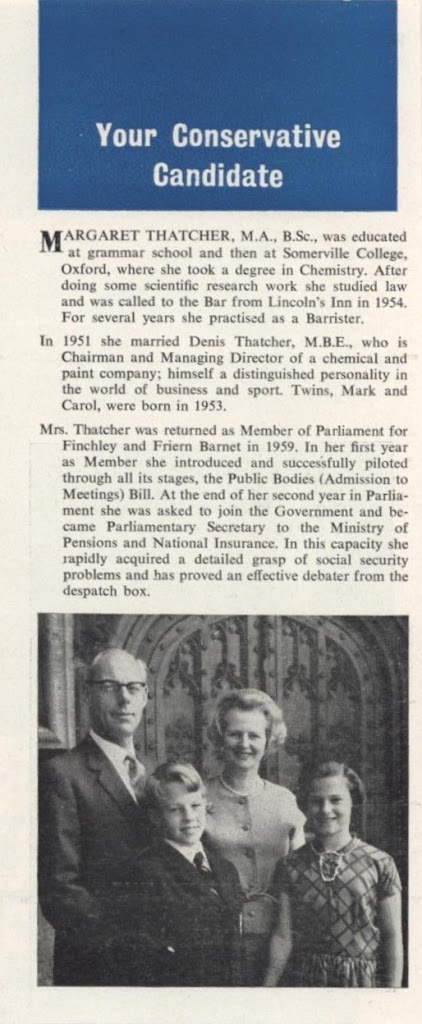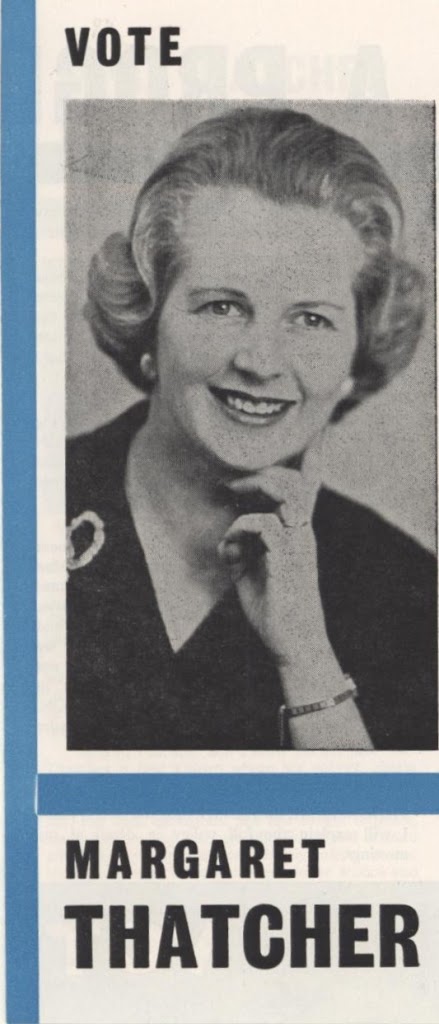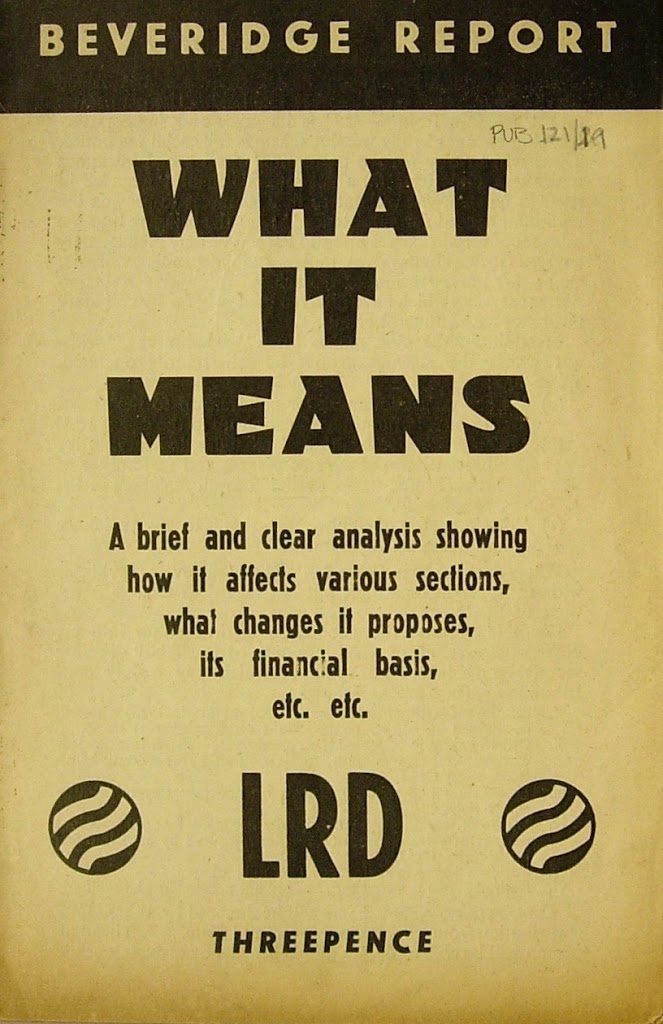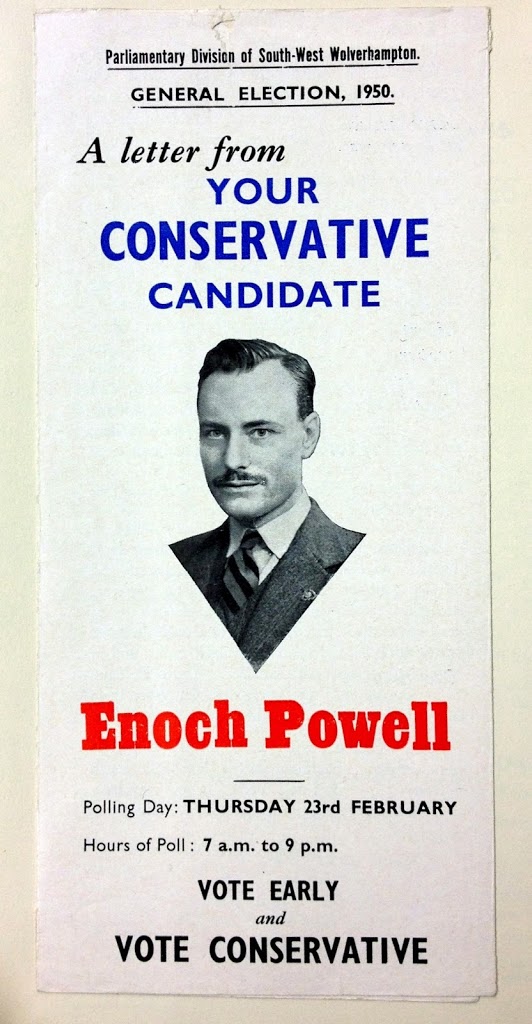Tag Archives: Conservative Party Archive
The Admission of Foreign Paupers – a reminder from 1892…
With the UK due to open its doors to Romanians and Bulgarians from 1st January, 2014, we look back to 1892, when an earlier wave of immigration was causing consternation and became an election issue for the Conservative Party.
Lord Salisbury’s Conservative Government had been in power since 1886 when this 7-page election pamphlet was published on the subject of immigration during the General Election campaign in June 1892:
The majority of the destitute immigrants referred to in the pamphlet, were Russian and Polish Jews fleeing the pogroms of the Russian Empire, which had been going on since 1881.
By the late 1880s, the widespread British sympathy initially expressed towards the Jewish refugees was giving way in some quarters to hostility, as the immigrants tended to concentrate in the East End of London, contributing to overcrowding and insanitary conditions, and increasing competition for jobs:
‘The mode of living of these immigrants is wretched in the extreme. Their food is of a poor nature, and they are able to maintain existence on much less than an English workman. They are for the most part an inoffensive race, and moral in their habits. In physique they are, as a rule, undersized, but their health is not bad, and they are capable of hard work. They are very industrious and work long hours for low wages’.
Although statistics at the time were unreliable, an estimated 12,062 foreign immigrants had arrived in the UK through the Port of London alone during 1888. Of these, about ‘one-third are poor, and about one-sixth absolutely destitute, without any baggage, and clad in the most wretched manner.’ By 1891, the total number of immigrants had reached 28,000.
Salisbury, as Prime Minister, had appointed a Commission of Inquiry under the chairmanship of the Conservative MP Sir John Colomb, in 1888, to look into the problems of unrestricted immigration into the UK.
Colomb reported in 1889 and, although he acknowledged that native English workers’ conditions had deteriorated as the result of foreign workers’ willingness to work for less pay, and that there was over-crowding with resulting insanitary conditions in Tower Hamlets, Mile End and Whitechapel, he was unwilling to recommend restricting the immigration of foreign paupers.
The following year, a House of Commons Select Committee found the immigration of foreign paupers to be a contributory factor in the notorious ‘Sweating System’, whereby paupers were forced into virtual servitude by their destitution, though it too was sympathetic to the suffering of foreign pauper immigrants in their journey from Russia:
‘On arriving here they are quickly despoiled of any little worldly goods they may have brought with them, and have to depend for immediate support upon friends and have, as slaves, to work for those who have given them shelter, until six months’ residence qualifies them for relief from the Jewish Board of Guardians’.
Any money they might have is ‘very soon cased by the loafers, and touts, and runners, that hang about the docks for the purpose of trying to show them lodgings, or a place to rest themselves for the night’. Testimony from the Rector of Spitalfields, subsequently the Bishop of Bedford, stated that some paupers were to be found working 19-hour days in sweat shops in return merely for shelter.
As the result of these various Inquiries, proper lists of immigrants arriving at ports around the UK were ordered to be kept for the first time.
Similar increases in numbers of immigrants were being reported in Manchester, Liverpool, Leeds, Hull and Newcastle, although it was noted that as many as were staying in the UK were moving on to the United States, Brazil and Argentina.
On May 6th 1892, Balfour stated in Parliament that the Government was considering legislation to deal with the problem, but although the Conservatives won the general election that July, they failed to secure a majority and Salisbury’s government was defeated within the month.
Immigration of foreign paupers continued to be an issue for British politics and what was probably the first restriction on immigration into Britain eventually came onto the Statute Book with the Aliens Act of 1905.
New releases under the 30-year rule…
Conservative speeches ‘erased’ by the Party safe at the Bodleian Library!
Everest expedition remembered…from the pages of ‘The Imp’
In this 60th anniversary year of Hillary and Tenzing’s successful ascent of Everest in 1953, The Conservative Party Archive looks back to an attempt made 20 years earlier, which was publicised in the May 1933 issue of The Imp.
In May 1933, Hugh Ruttledge, then a 43 year-old with a long career in the Indian Civil Service was chosen to lead the first British attempt on the mountain since the ill-fated expedition of Mallory and Irvine in 1924 which had cost both men their lives. The Imp was the monthly newsletter of the Junior Imperial League – the Conservative Party’s youth wing which was re-modelled after the War as the Young Conservatives.
Interestingly, Ruttledge, who went on to lead a second attempt on Everest in 1936, had rejected Tenzing Norgay for the Sherpa team which accompanied him.
Happy birthday to…the 1922 Committee
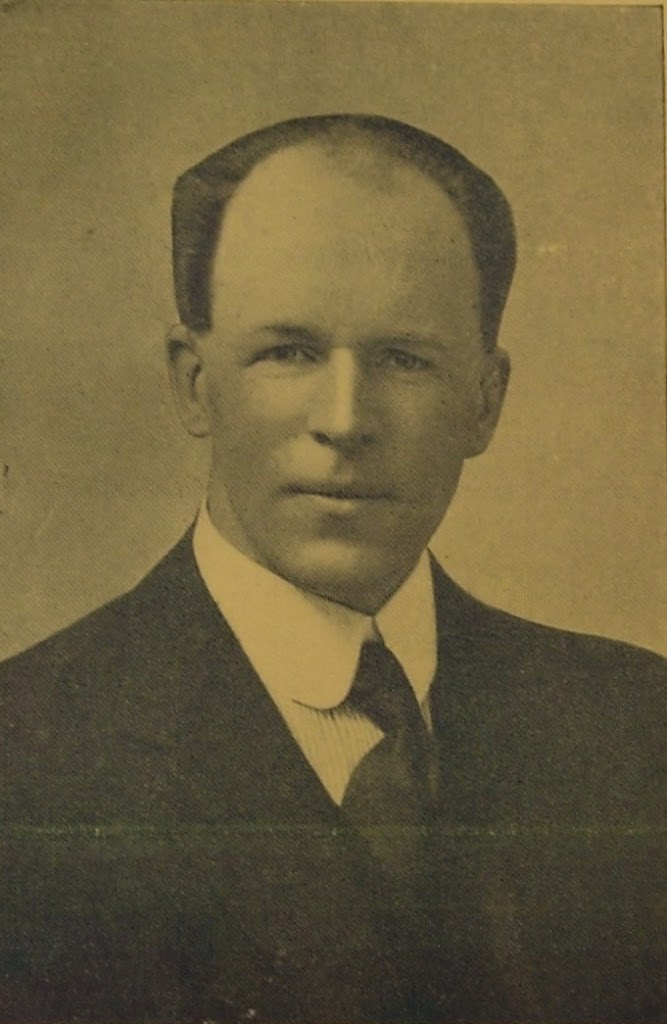 |
| Gervais Rentoul, MP for Lowestoft, 1922-1934, and first chairman of the 1922 Committee |
A Tribute to Baroness Thatcher of Kevesten
Lady Thatcher, who died on Monday, was part of a distinguished line of twenty six British Prime Ministers educated at Oxford University, where she studied Chemistry at Somerville College between 1943-1947 under the supervision of Dorothy Hodgkin, with whom she continued an occasional correspondence well into the 1980s (Hodgkin Papers, and Additional Hodgkin Papers, Bodleian Library).
Her political career is fully captured in documents held within the Conservative Party Archive at the Bodleian, from canvassing in Oxford during the 1945 General Election campaign and her tenure as President of the Oxford University Conservative Association in 1946, through her long struggle for election to Parliament, her holding of a range of junior Ministerial and Opposition posts from 1961 leading to her appointment to Heath’s Shadow Cabinet in 1967, as Education Secretary in the 1970-1974 Conservative Government, Leader of the Conservative Party from 1975, and onward through her tumultuous period as Prime Minister, 1979-1990.
Below is a chronological selection of material from the Conservative Party Archive which illustrates Thatcher’s rise through the Conservative Party ranks between 1949-1979.
50 years ago: The Profumo Affair
 |
| Profumo’s election address from 1950, when he was elected for Stratford-upon-Avon |
On 22 March 1963, British Secretary of State for War John Profumo made a statement in the House of Commons in which he declared, ‘There was no impropriety whatsoever in my acquaintanceship with Miss Keeler’. Profumo had been implicated in an affair with Christine Keeler, a model whose relationship with a senior Soviet naval attaché made her connection to the Secretary of State for War concerning (read the full statement on the Hansard website).
In June 1963, Profumo resigned, admitting that he had misled the House in his testimony. The scandal rocked the Party and damaged the reputation of its leader, Harold Macmillan. Macmillan resigned due to ill health in October 1963; many felt the crisis had played a role in his illness. The reports surrounding the 1963 Conservative Party Conference include motions of support from various constituencies, though letters from area agents and the public in the summer of 1963 show mixed feelings.
The Archive contains relatively little about the affair, but there are a few bits and pieces that shed light on the Party’s stance. The Party conducted a survey to determine how sentiment towards Prime Minister Macmillan had changed; although it showed that 44% (59% of Labour supporters) called for a General Election, the survey report indicated little concern, stating that it showed that ‘the immediate effects of the Profumo crisis on the popularity of the Government and on the personal popularity of the Prime Minister may have been exaggerated.’ Various meeting minutes make it clear that the affair was discussed in detail, if not the details of the discussion.
 |
| National Opinion Poll on the effect of the Profumo crisis (CCO 180/25/2/1) |
Though the scandal eventually blew over, its effects were far flung and contributed to significant changes in Party leadership. It has been reintroduced to the public through various films, plays, songs and memoirs, from the 1989 film Scandal to mentions in tracks by Billy Joel and The Clash.
Beveridge and the British Welfare State
Today marks 50 years since the death of William Beveridge, the British econonomist and social reformer whose Beveridge Report formed the basis of Britain’s welfare state.
We’ve covered Beveridge’s report before on this blog, and we encourage you to take a look at the full story.
Upcoming events in Oxford: Jim Callaghan Remembered & Alistair Cooke on Enoch Powell
There are a handful of upcoming events in Oxford that may be of interest to historians and those with an interest in Conservative Party History.
Jim Callaghan Remembered
5.30pm, 7 March 2013
Bodleian Library
A joint event staged by the Bodleian Library, the History Faculty, University of Oxford, and Oxford University Press/Oxford Dictionary of National Biography marking the life of Jim Callaghan, Baron Callaghan (1912-2005).
A leading campaigner against British colonialism during the 1950s, Callaghan became one of the key figures in the Wilson governments, 1964-70 and 1974-76, holding all three of the most senior Cabinet posts: Chancellor of the Exchequer, Home Secretary, and Foreign Secretary. From 1976 to 1979 he served as Prime Minister. In retirement he was an active Elder Statesman. His private papers in the Bodleian Library are a major historical resource.
Speakers include Baroness Jay, Lord Hattersley, Lord Morgan, and Andrew Smith, MP. The event will be chaired by Dr Lawrence Goldman, editor of Oxford Dictionary of National Biography.
This event is free and open to all.
There will be a reception at 6.45pm in the Divinity School at the Bodleian Library, Oxford.
For further information, please see the event page.
Enoch at 100: A Re-evaluation of the Life, Politics and Philosophy of Enoch Powell
Part of the Oxford Literary Festival
Alistair Cooke and Frank Field (chaired by Richard Ritchie)
2pm, 20 March 2013
Alistair Cooke, Lord Lexden, joins Frank Field in an examination of the life and politics of Enoch Powell, who would have been 100 years old in 2012. Both politicians have contributed to Enoch at 100, a collection of essays to mark the anniversary of the birth of one of the 20th century’s most controversial politicians. The essays aim to judge whether Powell’s views still have relevance today and cover areas such as the European Union, constitutional reform, immigration and social cohesion, and defence and foreign policy.
Alistair Cooke, Lord Lexden, is a political historian and official historian of the Conservative Party and occasional contributor to this blog. Frank Field is the well-known Labour MP for Birkenhead. The conversation is chaired by Richard Ritchie, archivist for Enoch Powell, editor of two books of Enoch Powell’s speeches, and also a contributor to Enoch at 100.
To book a place, please visit the Oxford Literary Festival page for the event.





